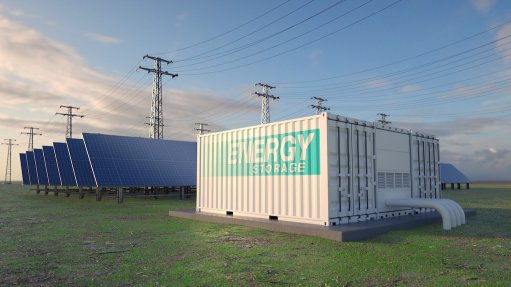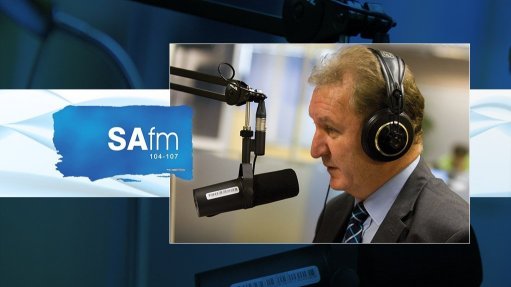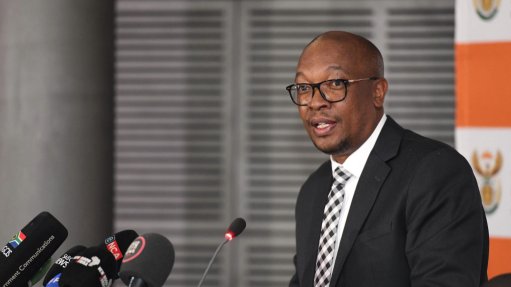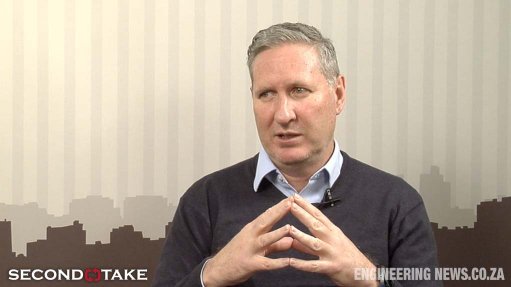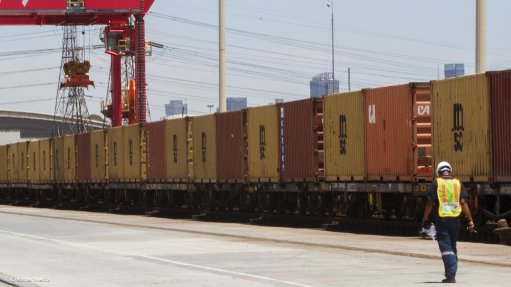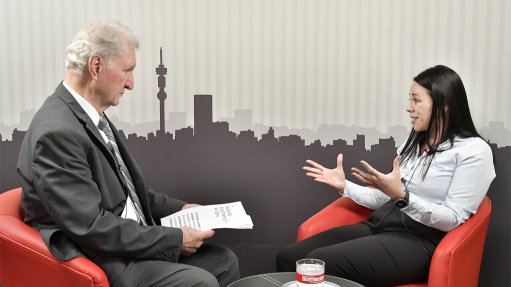Medium-term budget is positive - perhaps too positive, economists say
On Wednesday, Finance Minister Enoch Godongwana was asked to describe the Medium-term Budget Policy Statement (MTBPS), and he responded with one word: "positive". Economists mostly agreed.
They welcomed confirmation that South Africa has retreated away from the fiscal cliff.
At the height of the pandemic, Treasury expected South Africa's budget deficit would reach 8.6% this year. Instead, it looks on track for 4.9%. This is also much lower than the 6% expected in February's Budget.
This is largely thanks to a surprisingly large corporate tax take this year, which is on track to beat the budgeted amount by more than R60-billion. While mining continues to contribute a large share of this, the financial and manufacturing sectors also delivered.
Some of the higher-than-expected tax income is being used to reduce government borrowing, and Treasury now expects that by the end of 2023/24, government revenue will exceed its spending (excluding interest payments) for the first time in 15 years.
Gross loan debt is expected to stabilise at 71.4% of GDP this year – two years earlier, and at a lower level than previously expected.
"Despite the global energy and food price shocks, South Africa's Medium-term Budget Policy Statement reaffirmed the country’s commitment to fiscal consolidation," said Aurélien Mali, senior credit officer at Moody's Investors Service.
"Thanks to improved revenue collection, the government plans to re-prioritise spending towards security and infrastructure, in order to support long-term economic growth. However, Moody's forecast the economy to grow between 1% to 1.5% over the next few years in part due to infrastructure challenges."
Bernard Sacks, tax partner at Mazars in South Africa, said the medium-term budget was good and optimistic.
"It seems that the honeymoon phase is over regarding additional taxes on commodity prices, however, the corporate sector, which includes finance, banking and real estate, seems to have performed better than anticipated.
Old Mutual chief economist, Johann Els, said that the MTBPS was "a better-than-expected market-friendly fiscal statement" which showed a substantially improved fiscal situation and a significant further reduction in fiscal risk. On Wednesday, the local bond market strengthened, and the rand gained from around R18.14 on Wednesday morning to R17.94 by early evening – but a weaker dollar and declining US bond yields may have been bigger market drivers than the medium-term budget, market analysts say.
"[Treasury] aims to achieve fiscal sustainability by narrowing the budget deficit and stabilising debt, as well as to increase spending on policy priorities such as security and infrastructure – thus promoting economic growth – and reduce fiscal and economic risks and build buffers for future shocks. All priorities that send the right message," Els added.
Spending on building and other fixed structures is projected to almost double from R66.7-billion in 2022/23 to R112.5-billion by 2025/26.
Treasury has allocated an additional R8.7-billion for the Department of Police this year, with 15 000 new constables to be appointed in the next three years.
Els previously warned that the benefit of increasing commodity prices is set to fade and cannot sustain revenue increases indefinitely. Still, he is comfortable that the MTBPS has factored this in. "The MTBPS's upward revenue adjustments were expected and seem realistic, given better recent performance and the better base. Treasury's assumptions for corporate taxes are very conservative as they expect windfall benefits from commodity prices to fall away. They also expect a better SARS performance to assist."
But Carmen Nel, economist and macro-strategist at Matrix Fund Managers, believes there may be too much optimism embedded in these projections.
"The Treasury expects growth to hold up (around 1.8% over the medium term) despite the current slowdown in the global economy, with some of the world's largest economies – such as Germany and the UK – already skirting with recession. As growth in China and the US move well below trend, it is difficult to see how SA's growth will hold up when we add in domestic monetary policy tightening and what seems to be a commitment towards fiscal consolidation."
Nel says Treasury's expectation that the tax revenue overrun will continue assumes either a longer-term tailwind from elevated commodity prices or better revenue collection elsewhere. "While we agree that capacity rebuilding at SARS is bearing fruit, it may be a tall order to rely on this to sustain (tax) revenue at over 25% of GDP, which is well above the pre-Covid level of around 23.5% to 24.0%."
She also questioned why there weren't any permanent provisions for the SRD grant, which has been extended for another year, and also why the wage bill does not reflect the current wage offer.
Among most commentators, the biggest disappointment was Eskom.
"It's disappointing that despite guidance over the last few weeks that there will be detail in the MTBPS regarding how to deal with Eskom's debt, the detail was delayed until the February 2023 budget," said Els. "This could impact Treasury's – and the minister's – credibility going into the next Budget policy."
"However, the Minister did allude to the quantum of the debt relief at between one-third and two-thirds of Eskom's current debt, as well as saying, 'Importantly, the programme will include strict conditions required of Eskom and other stakeholders before and during the debt transfer', which points to the conditionality that we have been expecting from the programme."
Moody says transferring between one-third and two-thirds of Eskom's debt to the government will support the corporation's financial sustainability, but will not alone resolve its maintenance and operational challenges, which continue to drag on the South African economy. Moody's already accounts for the guaranteed debt of Eskom on its consolidated government debt-to-GDP ratio, meaning no immediate implications for the Ba2 sovereign credit rating.
However, Nel warned that the Eskom debt that the government will take on will be more expensive than that issued by the government directly, and so will add to the debt service bill.
BUSINESS REACTION
Business Unity SA CEO Cas Coovadia said there were some positives in the medium-term budget – but warned that economic growth is needed to maintain tax revenues at these levels.
"We (also) welcome the increase in infrastructure budgets, but there must be a total focus on identifying a limited number of infrastructure projects that are economically and socially impactful and the ability to implement urgently must be demonstrated."
Treasury allocated-billions to Sanral, Transnet and Denel in the medium-term budget. Coovadia said that the business sector "look[s] forward to Transnet being serious about a genuine partnership with the private sector to make private involvement the norm instead of the exception".
He also welcomed more money for the National Prosecuting Authority, the Special Investigating Unit and the Financial Intelligence Centre.
"This sends a clear message that law and order must be high up on the agenda, although this might be too late to avoid a greylisting."
Coovadia warned that the overall outlook for South Africa is poor, with growth forecasts dropping to 1.9% for this year, from a projection of 2.1%. This is primarily due to load shedding and a drop in exports.
"Real GDP growth over the next three years is expected to be a paltry 1.6%. This underlines the urgency to deal with the energy situation and the imperative for investment and growth. BUSA has been urging government to collaborate with us in bilateral structures to progress critical deliverables in critical priority interventions."
Comments
Press Office
Announcements
What's On
Subscribe to improve your user experience...
Option 1 (equivalent of R125 a month):
Receive a weekly copy of Creamer Media's Engineering News & Mining Weekly magazine
(print copy for those in South Africa and e-magazine for those outside of South Africa)
Receive daily email newsletters
Access to full search results
Access archive of magazine back copies
Access to Projects in Progress
Access to ONE Research Report of your choice in PDF format
Option 2 (equivalent of R375 a month):
All benefits from Option 1
PLUS
Access to Creamer Media's Research Channel Africa for ALL Research Reports, in PDF format, on various industrial and mining sectors
including Electricity; Water; Energy Transition; Hydrogen; Roads, Rail and Ports; Coal; Gold; Platinum; Battery Metals; etc.
Already a subscriber?
Forgotten your password?
Receive weekly copy of Creamer Media's Engineering News & Mining Weekly magazine (print copy for those in South Africa and e-magazine for those outside of South Africa)
➕
Recieve daily email newsletters
➕
Access to full search results
➕
Access archive of magazine back copies
➕
Access to Projects in Progress
➕
Access to ONE Research Report of your choice in PDF format
RESEARCH CHANNEL AFRICA
R4500 (equivalent of R375 a month)
SUBSCRIBEAll benefits from Option 1
➕
Access to Creamer Media's Research Channel Africa for ALL Research Reports on various industrial and mining sectors, in PDF format, including on:
Electricity
➕
Water
➕
Energy Transition
➕
Hydrogen
➕
Roads, Rail and Ports
➕
Coal
➕
Gold
➕
Platinum
➕
Battery Metals
➕
etc.
Receive all benefits from Option 1 or Option 2 delivered to numerous people at your company
➕
Multiple User names and Passwords for simultaneous log-ins
➕
Intranet integration access to all in your organisation






